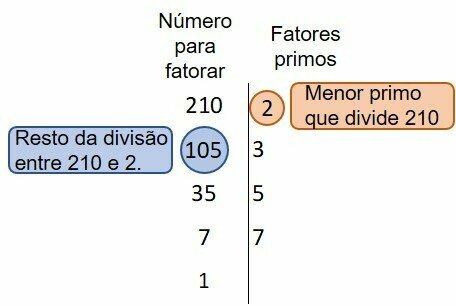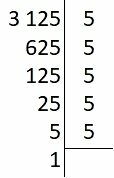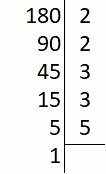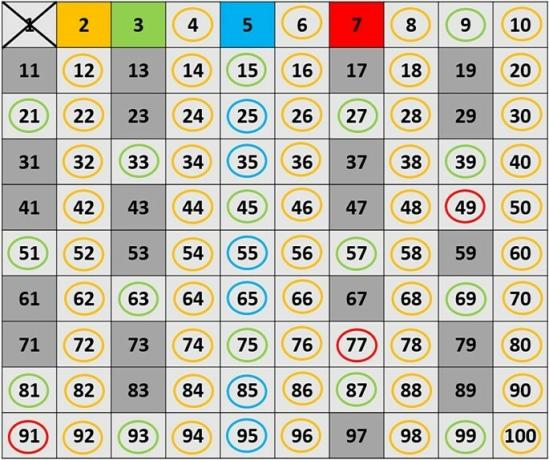To decompose a number into prime factors, or to factor it out, is to write this number as a multiplication of prime numbers. The factors are terms of multiplication which, in this case, are prime numbers.
It is worth remembering that prime numbers are those divisible only by 1 and the number itself, in addition to being infinite. As examples: 2, 3, 5, 7, 11, 13, 17, 19, 23, 29, 31, 37, 41, 47...
As the product of prime numbers form composite numbers, decomposing a composite number is determining what these factors are.
How to decompose a number
A simple method to decompose a number into prime factors is to write it to the left of a vertical line. On the right is written its smallest prime divisor. After performing the division, the remainder is below the original number and the process continues until the remainder is 1.
Example
Decompose the number 210 into prime factors.

The factored form of 210, or its decomposition into prime factors, is: .
See too:
- What are prime numbers?
- Prime numbers
- dividers
- Multiples and Dividers
- MMC and MDC
Prime factor decomposition exercises
Exercise 1
Decompose 3 125 into prime factors.

The factored form of 3 125 is 5. 5. 5. 5. 5 or, .
Exercise 2
Write in factored form, in prime factors.

The factored form into prime factors of 180 is 2 x 2 x 3 x 3 x 5 or, .


